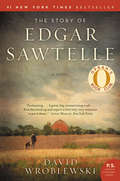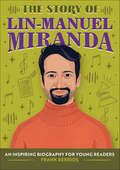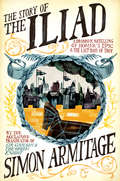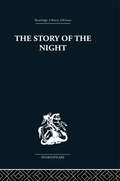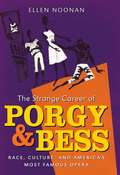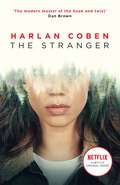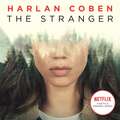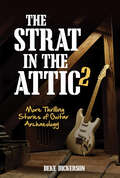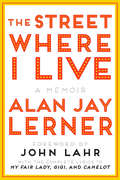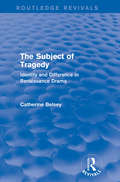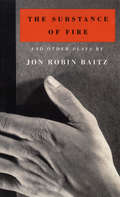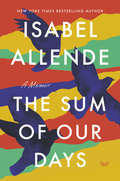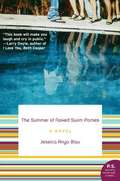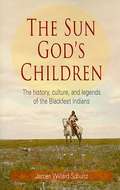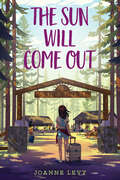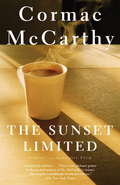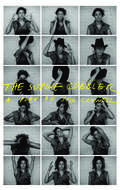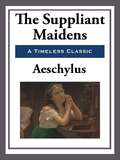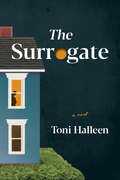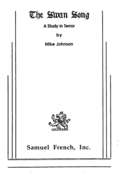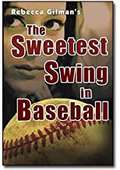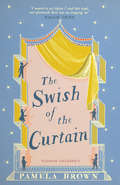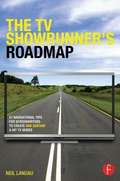- Table View
- List View
The Story of Edgar Sawtelle: A Novel
by David WroblewskiAn Oprah's Book Club Pick#1 New York Times Bestseller“A mystery, a thriller, a ghost story, and a literary tour de force . . . an authentic epic, long and lush, full of back story and observed detail . . . the author exercises a certain magic that catches and holds our attention, a magic that is undeniably his own.”—Los Angeles Times Book ReviewBorn mute, speaking only in sign, Edgar Sawtelle leads an idyllic life on his family’s farm in remote northern Wisconsin, where they raise and train an extraordinary breed of dog. But when tragedy mysteriously strikes, Edgar is forced to flee into the vast neighboring wilderness, accompanied by three yearling dogs. He comes of age in the wild, struggling for survival, until the day Edgar is forced to choose between leaving forever and returning home to learn the truth behind what has happened.Filled with breathtaking scenes—the elemental north woods, the sweep of seasons, an iconic American barn, a fateful vision rendered in the falling rain—The Story of Edgar Sawtelle is a meditation on the limits of language and what lies beyond, a brilliantly inventive retelling of an ancient story, and an epic tale of devotion, betrayal, and courage in the American heartland.
The Story of Lin-Manuel Miranda: An Inspiring Biography for Young Readers (The Story of Biographies)
by Frank BerriosDiscover the life of Lin-Manuel Miranda—a story about creating change through art, for kids ages 6 to 9 Lin-Manuel Miranda is an award-winning composer, actor, and playwright—best known for the hit musical Hamilton, which he created! Before he changed the world of entertainment, Lin-Manuel was an intelligent young boy who loved music and musicals. He was inspired to write his own songs and plays, and his life changed when the plays he wrote became huge successes on Broadway. This book explores how Lin-Manuel went from being an artistic boy growing up in New York City to a rising star and Pulitzer Prize winner.Independent reading—This Lin-Manuel Miranda biography is broken down into short chapters and simple language so kids 6 to 9 can read and learn on their own.Critical thinking—Kids will learn the Who, What, Where, When, Why, and How of Lin-Manuel's life, find definitions of new words, discussion questions, and more.A lasting legacy—Discover how Lin-Manuel has transformed the performing arts and brought Broadway plays to a wider audience.How will Lin-Manuel's dedication to his art and activism inspire you?Discover activists, artists, athletes, and more from across history with the rest of the Story Of series, including famous figures like: Selena Quintanilla, Frida Kahlo, Stan Lee, Maya Angelou, and Audrey Hepburn.
The Story of the Iliad: A Dramatic Retelling of Homer’s Epic and the Last Days of Troy
by Simon ArmitageAward-winning poet Simon Armitage dramatizes the story of Troy, animating this classic epic for a new generation of readers. Following his highly acclaimed dramatization of the Odyssey, Simon Armitage here takes on the fate of Troy, bringing Homer's Iliad to life with refreshing imaginative vision. In the final days of the Trojan War, the Trojans and the Greeks are caught in a bitter stalemate. Exhausted and desperate after ten years of warfare, gods and men battle among themselves for the glory of recognition and a hand in victory. Cleverly intertwining the Iliad and the Aeneid, Armitage poetically narrates the tale of Troy to its dire end, evoking a world plagued by deceit, conflict, and a deadly predilection for pride and envy. As with the Odyssey, Armitage reveals the echoes of ancient myth in our contemporary war-torn landscape, and reinvigorates the classic epics with adventure, passion, and, surprisingly, Shakespearean wit.
The Story of the Night: Studies in Shakespeare's Major Tragedies
by John HollowayFirst published in 1961. Critiquing the critics, and examining the vocabulary of twentieth century criticism of the Shakespearean tragedies, John Holloway's book covers Hamlet, Othello, Macbeth, King Lear, Antony and Cleopatra, Coriolanus, Timon of Athens and the themes of Shakespearean Tragedy and the idea of human sacrifice and the concepts of myth and ritual in literature.
The Strange Career of Porgy and Bess
by Ellen NoonanCreated by George Gershwin and DuBose Heyward and sung by generations of black performers, Porgy and Bess has been both embraced and reviled since its debut in 1935. In this comprehensive account, Ellen Noonan examines the opera's long history of invention and reinvention as a barometer of twentieth-century American expectations about race, culture, and the struggle for equality. In its surprising endurance lies a myriad of local, national, and international stories.For black performers and commentators, Porgy and Bess was a nexus for debates about cultural representation and racial uplift. White producers, critics, and even audiences spun revealing racial narratives around the show, initially in an attempt to demonstrate its authenticity and later to keep it from becoming discredited or irrelevant. Expertly weaving together the wide-ranging debates over the original novel, Porgy, and its adaptations on stage and film with a history of its intimate ties to Charleston, The Strange Career of "Porgy and Bess" uncovers the complexities behind one of our nation's most long-lived cultural touchstones.
The Stranger: A gripping thriller from the #1 bestselling creator of hit Netflix show Fool Me Once (Myron Bolitar Ser. #11)
by Harlan CobenNOW A MAJOR NETFLIX SERIES. WE ALL HAVE SECRETS...'I wanted to finish it so fast so I could learn the truth about what really happened' ⭐⭐⭐⭐⭐'Right from page one this is a real pageturner' ⭐⭐⭐⭐⭐Adam Price has a lot to lose: a beautiful family, a big house, a good job - a perfect life.But then he meets a stranger in a bar and learns a shocking secret about his wife.With the mirage of perfection shattered, Adam finds himself caught up in something far darker than his wife's deception.And if he doesn't make the right moves, the conspiracy he's stumbled into will not only ruin lives - it will end them.
The Stranger: Now a major Netflix show
by Harlan CobenThe Stranger appears out of nowhere, perhaps in a bar, or a parking lot, or at the grocery store. His identity is unknown. His motives are unclear. His information is undeniable. Then he whispers a few words in your ear and disappears, leaving you picking up the pieces of your shattered world.Adam Price has a lot to lose: a comfortable marriage to a beautiful woman, two wonderful sons, and all the trappings of the American Dream - a big house, a good job, a seemingly perfect life.Then he runs into the Stranger. When he learns a devastating secret about his wife, Corrine, he confronts her, and the mirage of perfection disappears as if it never existed at all. Soon Adam finds himself tangled in something far darker than even Corrine's deception, and realises that if he doesn't make exactly the right moves, the conspiracy he's stumbled into will not only ruin lives - it will end them.Read by Eric Meyers(p) 2015 Orion Publishing Group
The Strat in the Attic 2: More Thrilling Stories of Guitar Archaeology
by Deke DickersonDon’t fret! The music historian and guitar sleuth brings you more astounding stories of rare guitar finds and the legends who owned them.Do you dream of finding a 1954 Stratocaster or 1952 Gibson Les Paul online, at a garage sale, or in the local penny saver? How about virtually rubbing elbows with one of your favorite rock legends? Following up his first-of-its-kind The Strat in the Attic, musician, journalist, and “guitarchaeologist” Deke Dickerson shares the stories behind dozens of more astounding finds including:A rarer-than-hens-teeth 1966 Hallmark Swept-Wing that originally belonged to Robbie Krieger of the Doors, stashed away in an attic in Alaska for forty years!A crazy-valuable 1958 Gibson Flying V belonging to a Chicago bluesman—who, it turns out, also happens to have an equally rare 1958 Gibson Explorer!An out-of-the-blue, a “to whom it may concern” email leads the author to a trailer park in Salem, Oregon, where one of Bob Wills and the Texas Playboys’ original 1940s Epiphone Emperor archtops is waiting to be purchased for a song!Luthier R.C. Allen relates the tales of buying Nat “King” Cole Trio guitarist Oscar Moore’s Stromberg Master 400 archtop and of being gifted a 1953 Standel amp from Merle Travis!Buddy Merrill, the amazingly talented guitarist from the Lawrence Welk show, gives his 1970 Micro-Frets Huntington to the author, but only if he “promises to PRACTICE.”Photos of the guitars and other exciting memorabilia round out a package that no vintage-guitar aficionado will want to be without!“The man knows how to tell a great story.” —Jonathan Kellerman, #1 New York Times–bestselling author
The Street Where I Live: A Memoir (Pop Concert Full Orchestra Ser.)
by Alan J. Lerner“Lerner will always be remembered as a Broadway light, and one of the brightest.” —Tom Shales, The Washington Post The Street Where I Live is at once an intimate biography of three great shows—My Fair Lady, Gigi, and Camelot—and a candid account of the life and times of Alan J. Lerner, one of America’s most acclaimed and popular lyricists. Large-hearted, humorous, and often poignant in its reverence for a celebrated era in the American theater, this is the story of what Lerner calls "the sundown of wit, eccentricity, and glamour." Try as he might to keep himself out of these pages, Lerner reveals himself to be a man of great talent, laughter, and love. Along the way, we meet a sensational supporting cast: Moss Hart, Fritz Loewe, Julie Andrews, Richard Burton, Rex Harrison, Cecil Beaton, Louis Jourdan, and Maurice Chevalier, to name a few. They are seen in moments of triumph and disaster, but all are professionals at the creation of theater. And the creation of theater is the matrix of this wonderful book. Included are the complete lyrics to My Fair Lady, Gigi, and Camelot.
The Structure and Performance of Euripides' Helen
by C. W. MarshallUsing Euripides' play, Helen, as the main point of reference, C. W. Marshall's detailed study expands our understanding of Athenian tragedy and provides new interpretations of how Euripides created meaning in performance. Marshall focuses on dramatic structure to show how assumptions held by the ancient audience shaped meaning in Helen and to demonstrate how Euripides' play draws extensively on the satyr play Proteus, which was part of Aeschylus' Oresteia. Structure is presented not as a theoretical abstraction, but as a crucial component of the experience of performance, working with music, the chorus and the other plays in the tetralogy. Euripides' Andromeda in particular is shown to have resonances with Helen not previously described. Arguing that the role of the director is key, Marshall shows that the choices that a director can make about role doubling, gestures, blocking, humour, and masks play a crucial part in forming the meaning of Helen.
The Struggle for Shakespeare's Text
by Gabriel EganWe know Shakespeare's writings only from imperfectly-made early editions, from which editors struggle to remove errors. The New Bibliography of the early twentieth century, refined with technological enhancements in the 1950s and 1960s, taught generations of editors how to make sense of the early editions of Shakespeare and use them to make modern editions. This book is the first complete history of the ideas that gave this movement its intellectual authority, and of the challenges to that authority that emerged in the 1980s and 1990s. Working chronologically, Egan traces the struggle to wring from the early editions evidence of precisely what Shakespeare wrote. The story of another struggle, between competing interpretations of the evidence from early editions, is told in detail and the consequences for editorial practice are comprehensively surveyed, allowing readers to discover just what is at stake when scholars argue about how to edit Shakespeare.
The Subject of Tragedy: Identity and Difference in Renaissance Drama (Routledge Revivals)
by Catherine BelseyFirst published in 1985, The Subject of Tragedy takes the drama of the sixteenth and seventeenth centuries as the starting point for an analysis of the differential identities of man and woman. Catherine Belsey charts, in a range of fictional and non-fictional texts, the production in the Renaissance of a meaning for subjectivity that is identifiably modern. The subject of liberal humanism – self-determining, free origin of language, choice and action – is highlighted as the product of a specific period in which man was the subject to which woman was related.
The Substance of Fire and Other Plays
by Jon Robin BaitzA frank examination of the controlling forces behind a nearly bankrupt private school for boys in South Africa, The Film Society introduced a young playwright with an extraordinarily mature grasp of people, language and society.Baitz's recent works have fulfilled his early promise and enhanced his reputation. <P><P>In The Substance of Fire (1991), a fiercely intellectual New York publisher struggles with his children for control of his business, and with the relentless pride which has made him previous to love. In The End of the Day (1992), an expatriate British doctor adapts to America by abandoning his ideals and succumbing to the twin lures of status and crime.About the Author: Jon Robin Baitz is the author of Three Hotels, The Film Society, Other Desert Cities, The End of the Day, and The Substance of Fire, which he adapted into a major motion picture. He was the showrunner on ABC's Brothers & Sisters. He also wrote the screenplay for the upcoming film Stonewall directed by Roland Emmerich. He lives in New York.
The Sum of Our Days: A Memoir (P. S. Ser.)
by Isabel AllendeNarrated with warmth, humor, exceptional candor and wisdom, The Sum of Our Days is a portrait of a contemporary family, tied together by the love, strong will, and stubborn determination of a beloved matriarch, the indomitable New York Times bestselling author of The House of the Spirits, Isabel Allende. "An inspiring and thought-provoking work." –Denver Post Isabel Allende reconstructs the painful reality of her own life in the wake of the tragic death of her daughter, Paula. Narrated with warmth, humor, exceptional candor, and wisdom, this remarkable memoir is as exuberant and as full of life as its creator. Allende bares her soul while sharing her thoughts on love, marriage, motherhood, spirituality and religion, infidelity, addiction, and memory—and recounts stories of the wildly eccentric, strong-minded, and eclectic tribe she gathers around her and lovingly embraces as a new kind of family.
The Summer of Naked Swim Parties: A Novel
by Jessica Anya Blau“This book will make you laugh and cry in public.” —Larry Doyle, author of I Love You, Beth CooperJessica Anya Blau's passionate and poignant debut novel of one girl’s coming of age in 1970s southern California, replete with stoners, hippies, surfers, bitchy girlfriends, first love, first heartbreak, and OPI shorts Jamie Green will remember “the summer of naked swim parties” for the rest of her life. It’s the summer in which she has her first serious boyfriend, Flip, who is three years older and comes with friends for Jamie’s friends; it’s the summer in which Jamie’s older sister is away at Outward Bound, leaving Jamie with her parents (and very often the house) to herself; it’s the summer in which Jamie’s parents throw naked swim parties, leaving Jamie cringing with embarrassment. And it’s the summer in which Jamie will be forced to confront love, loss, family, and heartbreak for the very first time.
The Sun God's Children: The History, Culture, and Legends of the Blackfeet Indians
by James Willard SchultzThe Blackfeet were people of the buffalo. They originated on the plains of today's southern Alberta, western Saskatchewan, and central Montana. In the 1830s famed artist and explorer George Catlin called the Blackfeet the most powerful tribe of Indians on the continent.
The Sun Will Come Out
by Joanne LevyKey Selling Points A sweet summer camp story about a painfully shy girl who meets a boy with a rare genetic condition. The book explores themes of facing your fears and the nature of true friendship. One of the main characters has progeria, a genetic condition that causes premature aging. Most children who have this don’t live past age 14. This story had its genesis in a terrible summer camp experience for the author. The book has a happy ending. Bea and her new friends stay in touch after summer is over.
The Sunset Limited: A Novel in Dramatic Form (Vintage International)
by Cormac MccarthyA startling encounter on a New York subway platform leads two strangers to a run-down tenement where a life or death decision must be made.In that small apartment, "Black" and "White," as the two men are known, begin a conversation that leads each back through his own history, mining the origins of two fundamentally opposing world views. White is a professor whose seemingly enviable existence of relative ease has left him nonetheless in despair. Black, an ex-con and ex-addict, is the more hopeful of the men-though he is just as desperate to convince White of the power of faith as White is desperate to deny it. Their aim is no less than this: to discover the meaning of life.Deft, spare, and full of artful tension, The Sunset Limited is a beautifully crafted, consistently thought-provoking, and deceptively intimate work by one of the most insightful writers of our time.
The Supine Cobbler
by Jill ConnellA contemporary clinical abortion in the spirit of a Western. The Doctor introduces the gang: The Supine Cobbler (wanted), her estranged sister (dead by hanging), her former best friend (missing, presumed dead) and her apprentice (a turncoat). Together they negotiate integrity in a lawless world. The Supine Cobbler is an unsentimental legend and a true story. It is a hero myth for girls. Praise for the productions of The Supine Cobbler: ‘The show is like nothing you’ve ever seen before.’ – Theatre Reader ‘Jill Connell … is consistently one of the most innovative playwrights in the country.’ – Vue Weekly ‘The Supine Cobbler is brilliant, subversive and deeply hilarious. The play is about an abortion – but also: waiting, haunting, cheating, hurting, daring and the private cultivation of one’s humanity. It is singular and surprising and epic and lean as Bowie. You cannot help but talk about this play. It is the work of a lover and a rebel. To miss it, would be to miss a master in her early bloom.’ – Claudia Dey, author of Trout Stanley and Stunt ‘I love this absolutely idiosyncratic play. It’s very funny, moving and sharp, and the only work of art about abortion I can think of that doesn’t sentimentalize or simplify the experience, but gets the strangeness and banality of it exactly right.’ – Sheila Heti, author of How Should a Person Be?
The Suppliant Maidens
by AeschylusIn the play, the Danaids, the fifty daughters of Danaus, founder of Argos, flee a forced marriage to their cousins in Egypt. They turn to King Pelasgus of Argos for protection, but Pelasgus refuses until the people of Argos weigh in on the decision, a distinctly democratic move on the part of the king. The people decide that the Danaids deserve protection, and they are allowed within the walls of Argos despite Egyptian protests.
The Surrogate: A Novel
by Toni Halleen“The Surrogate is a thrilling, high-stakes debut centering on a vulnerable newborn and two women who will do almost anything to claim her as their daughter. With a collection of vividly rendered characters, this twisty tale will leave you thinking about the true meaning of motherhood long after you turn the last page. I loved it!”—Patry Francis, bestselling author of All the Children Are HomeRuth is a no-nonsense fortysomething journalist from the Midwest, desperate for a child with her new husband, Hal. Their hope rests with Cally, a nineteen-year- old who wants to go to college—but doesn’t have the cash. The arrangement seems perfect for everyone.But within a day of the baby’s birth, Cally has a change of heart—and engineers a harrowing escape from the hospital with the newborn. When Ruth and Hal discover that Cally and their daughter are gone, a whole series of doubts and secrets is revealed, and the difference between right and wrong is no longer clear.Set in the vast, sparsely populated upper reaches of northern Minnesota in the middle of winter, The Surrogate follows Ruth, Hal, Cally, through a maze of thought-provoking questions about the nature of family, love, and relationships: What would you do for your partner, when the going gets tough? How much is a pregnancy “worth”? And who, if anyone, “deserves” to be a mother?With its realistic portrayal of surrogacy and motherhood, 'The Surrogate' is a thought-provoking novel that will stay with you long after you've finished reading. Toni Halleen's writing is both literary and suspenseful, making this a must-read for fans of psychological thrillers and domestic dramas.
The Swan Song. A Study in Terror
by Mike JohnsonThriller /3m, 4f / Interior / A depraved tale of mystery, murder, magic, madness, and hideous revenge, The Swan Song details the events of a single day from early afternoon to midnight. Olivia returns with her fiance to the creepy family manor after the funeral of her murdered parents. Miles desperately tries to get her away from the house and the eerie influences of her secretary, her ever tipsy aunt, a hidebound lawyer, a genuinely scary swami, and a kindly old housekeeper whose nervousness is contagious. Olivia won't leave until she contacts the spirit of her mother at midnight to learn who committed the ghastly murders. This shocker is crammed with harrowing suspense and the conclusion is guaranteed to scare the daylights out of your audience.
The Sweetest Swing In Baseball
by Rebecca Gilman"In The Sweetest Swing in Baseball, an artist named Dana Fielding is suffering from a slump in both her career and her personal life. After a disastrous gallery showing, her paranoia and depression send her boyfriend packing. When Fielding attempts suicide, she lands in a mental ward and finds she enjoys the structure of the days. But when she learns her health insurance will pay for only a 10-day stay, she cooks up a scheme with two fellow patients to fool the doctors into believing she's psychotic. Without knowing much about him, she takes on the personality of troubled baseball star Darryl Strawberry. Known for having the 'sweetest swing in baseball, ' Strawberry also struggled with ... the darker side of fame, including rejection by fans and the effort to make a comeback ... When Dana chats with fellow patients Michael, an alcoholic, and Gary, a stalker, the dialogue here is hilarious as Dana instructs a would-be killer on drawing negative space and the two men coach her on Strawberry's stats."--Publisher's website.
The Swish of the Curtain: Blue Door 1 (Blue Door #1)
by Pamela BrownThe classic story of seven children with a longing to be on stage: the inspiration for actors from Maggie Smith to Eileen AtkinsIn the town of Fenchester, seven resourceful children are yearning to be famous. One day, they come across a disused chapel, and an idea is formed. With a lick of paint and the addition of a beautiful curtain (which, however much they try, won't "swish" as stage curtains ought), the chapel becomes a theatre - and The Blue Door Theatre Company is formed.The children go from strength to strength, writing, directing and acting in their own plays. But their schooldays are numbered, and their parents want them to pack it in and train for sensible jobs. It seems that The Blue Door Theatre Company will have to go the way of all childhood dreams. But with a bit of luck, and the help of some influential friends, perhaps this is not the end, but only the beginning of their adventures in show business...
The TV Showrunner's Roadmap: 21 Navigational Tips for Screenwriters to Create and Sustain a Hit TV Series
by Neil LandauIf you've ever dreamed of being in charge of your own network, cable, or web series, 'The TV Showrunner's Roadmap' provides you with the tools for creating, writing, and managing your own hit show. Combining his 20+ years as a working screenwriter and UCLA professor, Neil Landau expertly guides you through 21 essential insights to the creation of a successful show, and takes you behind the scenes for exclusive and enlightening interviews with showrunners from some of TV's most lauded series.
